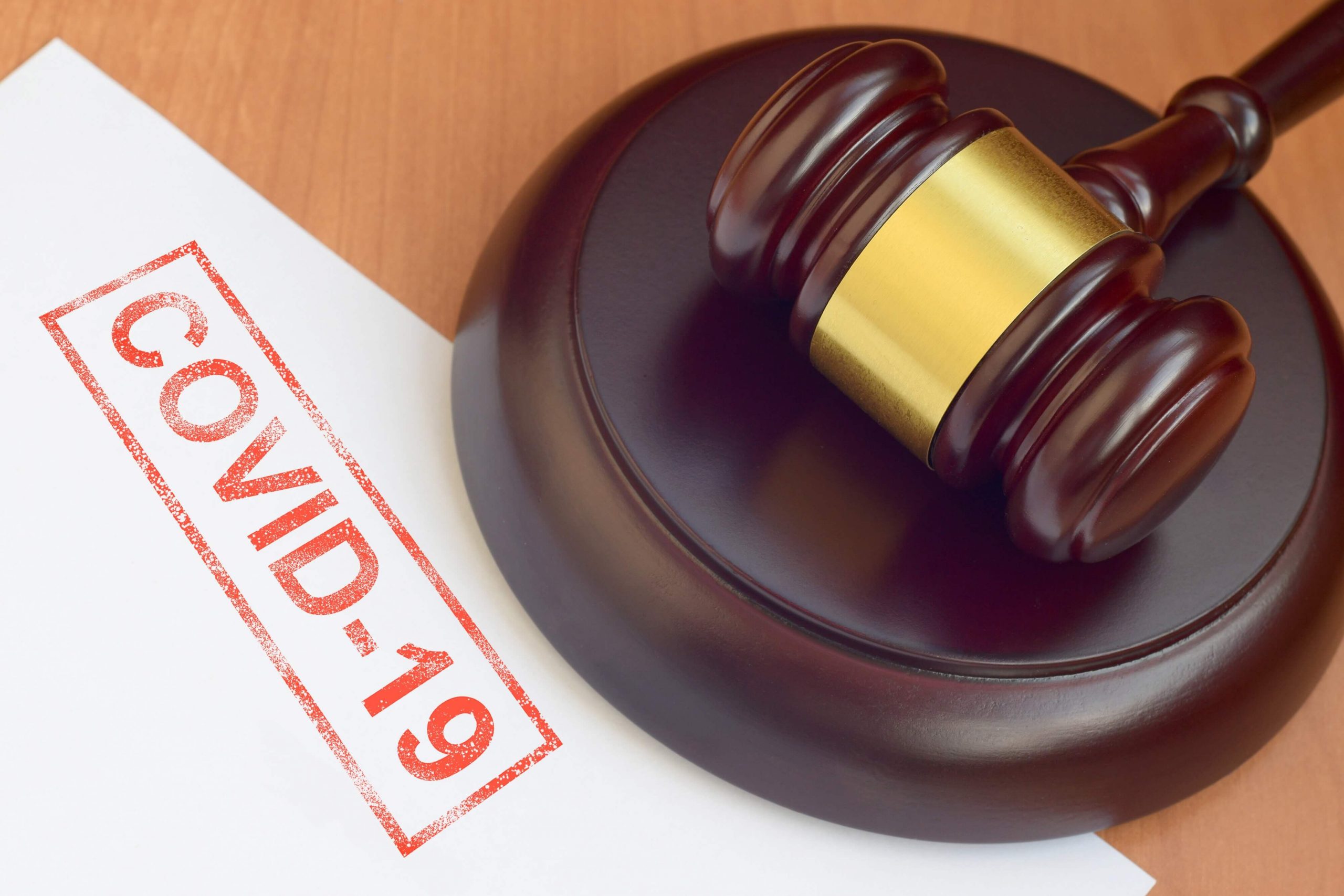COVID-19 lawsuits, liability immunity, waivers, and refusal to return to work

COVID-19 lawsuits, liability immunity, waivers, and refusal to return to work
Lawsuits
According to data collected by the Fisher Phillips LLC law firm, a total of 283 COVID-19-related lawsuits were filed in federal and state courts through June 30, with 122 of them filed in June. There’s also been an increase in class-action lawsuits – 41 have been filed since the start of the pandemic, 16 of which were filed in June.
Employment discrimination claims and work-from-home/leave claims are the most frequent types. Examples include an employee forced to reveal a multiple sclerosis diagnosis to justify accommodation request. The employee was subsequently terminated and filed a disability discrimination claim and workers who considered themselves vulnerable because of a medical condition or age who were denied requests to work from home.
The data analytical company, Praedicat Inc., maintains a litigation tracker and reports U.S. courts have seen more than 200 complaints filed against corporations alleging they are responsible for introducing and spreading COVID-19. As of July 13, more than half (55%) of complaints filed involved allegations of personal injury or threat of personal injury among cruise ship passengers, nursing home residents and employees. Industries that have significant clusters of complaints include hospitals, meat packing facilities, restaurants, and warehouses.
Liability immunity, waivers
While there’s been a push by many industry groups for federal and state legislation giving businesses protection from COVID-19 related liability suits from employees and consumers, it hasn’t happened at the federal level and only a handful of states have passed liability immunity laws with varying protections. These include Arkansas, Louisiana, North Carolina, Oklahoma, Utah, and Wyoming.
Some employers are requiring employees to sign liability waivers when they return to work. While the enforceability of liability waivers is a matter of state law, legal experts point out the presence of a waiver won’t be a concrete defense against legitimate negligence claims.
For work-related injuries where there is a rebuttable presumption, workers’ compensation will be the remedy. In other cases, proving COVID-19 was contracted at work will be difficult and employers can choose to contest the claim. But employers generally cannot ask employees to waive workers’ compensation protection.
In these unparalleled times, COVID-19 waivers are untested in courts and outcomes will likely vary significantly by jurisdiction. While a waiver can be a reasonable precaution, there are negatives to consider, particularly the reaction of employees and public perception. No waiver will replace the need to maintain a safe workplace in compliance with all local and state regulations and guidance from federal agencies.
Refusal to return to work
When a healthy employee refuses to return to work and an employer has made concerted efforts to ensure a safe environment, the first step is to determine why the employee is refusing to return. Some reasons may be legally protected under the ADA, Families First Coronavirus Response Act (FFCRA), or other federal and state laws. If COVID-19 poses an “imminent danger” in your workplace), your employee may be able to refuse to return according to OSHA guidance.
However, if an employee doesn’t qualify for these protections and is not protected by a union, employers can take steps to require a return to work. Essentially, a generalized fear of the virus is not a basis for refusing to return to work. It must be specifically related to the workplace, be in good faith, and reasonable to others, according to Courtney Malveaux, Richmond, Virginia-based principal and attorney with Jackson Lewis P.C. East Coast Risk Management, an IWCP member, addresses specific refusal to return-to-work situations in questions 6 – 9 in the FAQ’s “Reopening for Business After the Coronavirus Shutdown.” https://eastcoastriskmanagement.com/reopening/
SEVEN SECRETS
You’ll receive important information to help you avoid overcharges on your workers’ compensation.
